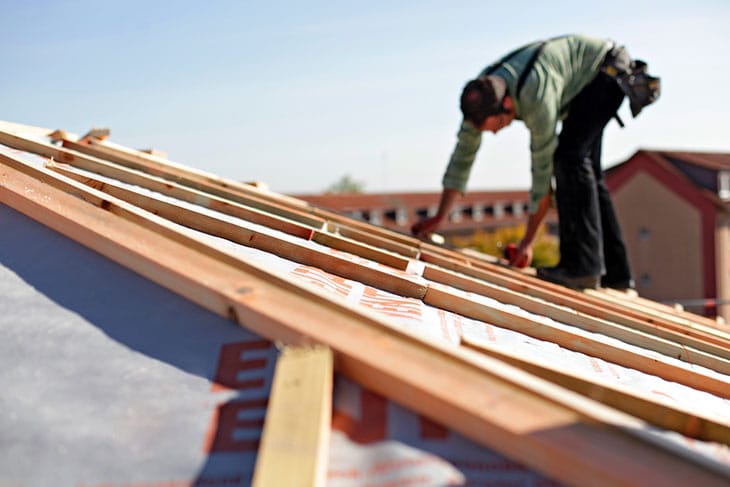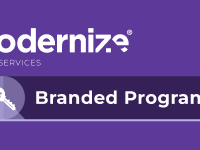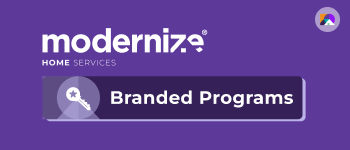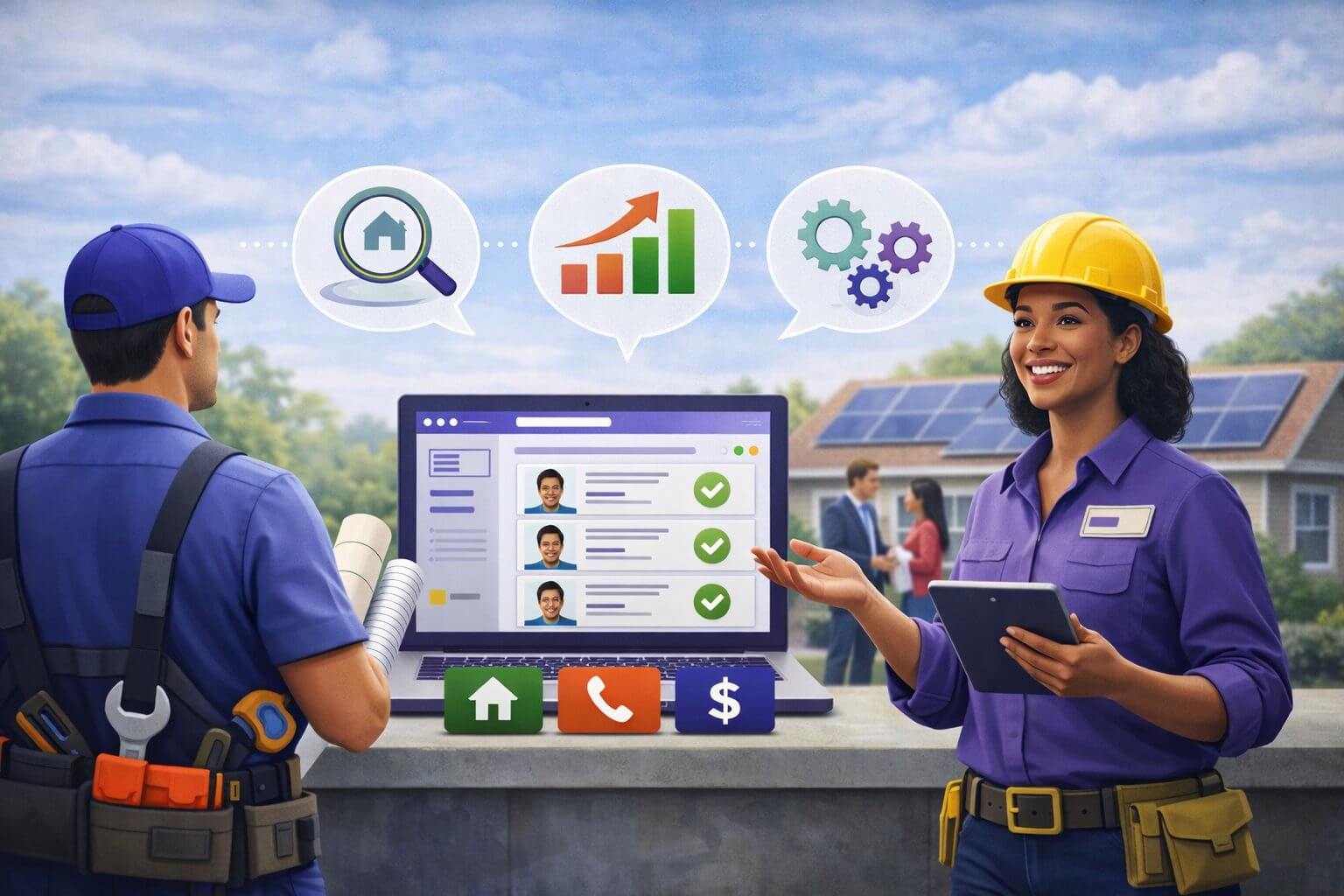Medical alert systems help seniors and individuals with mobility or health challenges maintain independence and safety at home. Whether your business offers in-home monitoring, wearable devices, or mobile emergency systems, success depends on connecting with caregivers and homeowners actively researching reliable medical alert solutions.
This guide explains how medical alert companies can generate qualified homeowner inquiries, improve online visibility, and measure ROI from their marketing efforts.
- What Is a Medical Alert Lead and Why Does It Matter?
- How Can Medical Alert Providers Attract Leads Online?
- Are Lead Generation Services Worth It for Medical Alert Companies?
- How Quickly Should Contractors Respond to Gutter Leads?
- How Do Medical Alert Providers Measure ROI from Lead Generation?
- What Types of Medical Alert Leads Are Most In Demand?
- What Trends Are Driving Medical Alert System Demand?
- Key Takeaways
- FAQ: Everything You Need to Know About Medical Alert Leads
What Is a Medical Alert Lead and Why Does It Matter?
A medical alert lead is a consumer or caregiver actively researching or requesting quotes for personal emergency response systems (PERS). These leads are typically high intent because buyers are motivated by safety, health concerns, or a desire for greater independence for a loved one.
Access to verified medical alert leads allows companies to reach ready-to-purchase consumers, often at critical decision-making moments. Whether you specialize in wearable devices, monitored systems, or mobile medical alerts, every qualified lead represents a meaningful opportunity for long-term customer relationships.
To understand how Modernize evaluates and prices homeowner and consumer leads, see How Much Do Modernize Leads Cost.

How Can Medical Alert Providers Attract Leads Online?
Most consumers and caregivers start their search online with terms like “best medical alert system for seniors” or “home medical monitoring device.” To capture that intent:
- Optimize for search intent: Include keywords like “medical alert system for seniors in [City]” or “personal emergency device near me.”
- Maintain your Google Business Profile: Add hours, verified reviews, and clear service descriptions.
- Encourage customer testimonials: Reviews build trust with families making emotionally driven decisions.
- Publish educational content: Write posts like “how to choose a medical alert system” or “top features to look for in senior monitoring devices.”
- Showcase real stories: Case studies or customer interviews demonstrate reliability and peace of mind.
Strong search visibility and reputation management help ensure your company appears when caregivers and homeowners are ready to act.
Are Lead Generation Services Worth It for Medical Alert Companies?
Lead generation services can help medical alert providers reach highly motivated buyers faster than traditional marketing. The best programs offer:
- Verified consumer data
- Real-time delivery of qualified inquiries
- Transparent pricing and flexible budgets
- Targeting by age group, geography, or system type
- Performance reporting to measure ROI
Before purchasing leads, evaluate how each provider verifies user intent, filters by audience type, and ensures data accuracy.
Modernize.com connects contractors with real homeowners requesting medical alert quotes in real time.
For more insight into Modernize’s process, see What to Expect When You Sign Up for Modernize Leads.
How Quickly Should Contractors Respond to Gutter Leads?
Speed and empathy matter. Caregivers and consumers exploring medical alert systems often compare multiple companies and choose the first one that responds professionally.
To improve your close rate:
- Respond to inquiries within minutes.
- Use CRM or text alerts to ensure immediate follow-up.
- Personalize your outreach — reference the buyer’s needs (e.g., “in-home monitoring” or “fall detection features”).
For more response tips, see Modernize’s Guide to Lead Follow-Up Best Practices.
.
How Do Medical Alert Providers Measure ROI from Lead Generation?
Tracking marketing performance helps determine which sources deliver the best results:
- Cost per lead (CPL): The amount spent to acquire each qualified inquiry.
- Conversion rate: The percentage of leads that result in new subscriptions or device purchases.
- Customer lifetime value (CLV): The total revenue generated from each subscriber over time.
- Return on ad spend (ROAS): Measures marketing profitability across channels.
To learn how Modernize helps contractors analyze performance data, explore the Modernize Data Feedback Loop.
What Types of Medical Alert Leads Are Most In Demand?
Understanding which systems homeowners and caregivers are researching most helps refine your marketing strategy:
- In-Home Medical Alert Systems: Landline or Wi-Fi-based monitoring; typically $20–$40/month.
- Mobile GPS Systems: Ideal for active seniors who want protection outside the home; $35–$60/month.
- Fall Detection Devices: Automatically notify emergency contacts; average $40–$55/month.
- Wearable Medical Alert Devices: Discreet smartwatches or pendants with two-way communication.
- Bundle Packages: Combine home and mobile protection under one plan.
What Trends Are Driving Medical Alert System Demand?
Several consumer and market shifts continue to drive steady growth in the medical alert industry:
- Aging population: Rising demand among seniors seeking independent living solutions.
- Technology integration: Smartwatches and AI-enabled monitoring devices are expanding functionality.
- Remote caregiving: More families are seeking connected solutions for long-distance care.
- Health awareness: Post-pandemic wellness trends emphasize proactive safety measures.
- Subscription models: Flexible plans and monthly monitoring options improve accessibility.
By aligning your offerings with these trends, your business can capture high-intent, trust-driven leads.
Key Takeaways
- Medical alert leads connect providers with caregivers and homeowners ready to invest in safety solutions.
- Local SEO, verified reviews, and fast response improve conversions.
- Tracking CPL, conversion rate, and CLV helps refine marketing spend.
- Aging demographics, technology integration, and wellness awareness continue to fuel demand.






